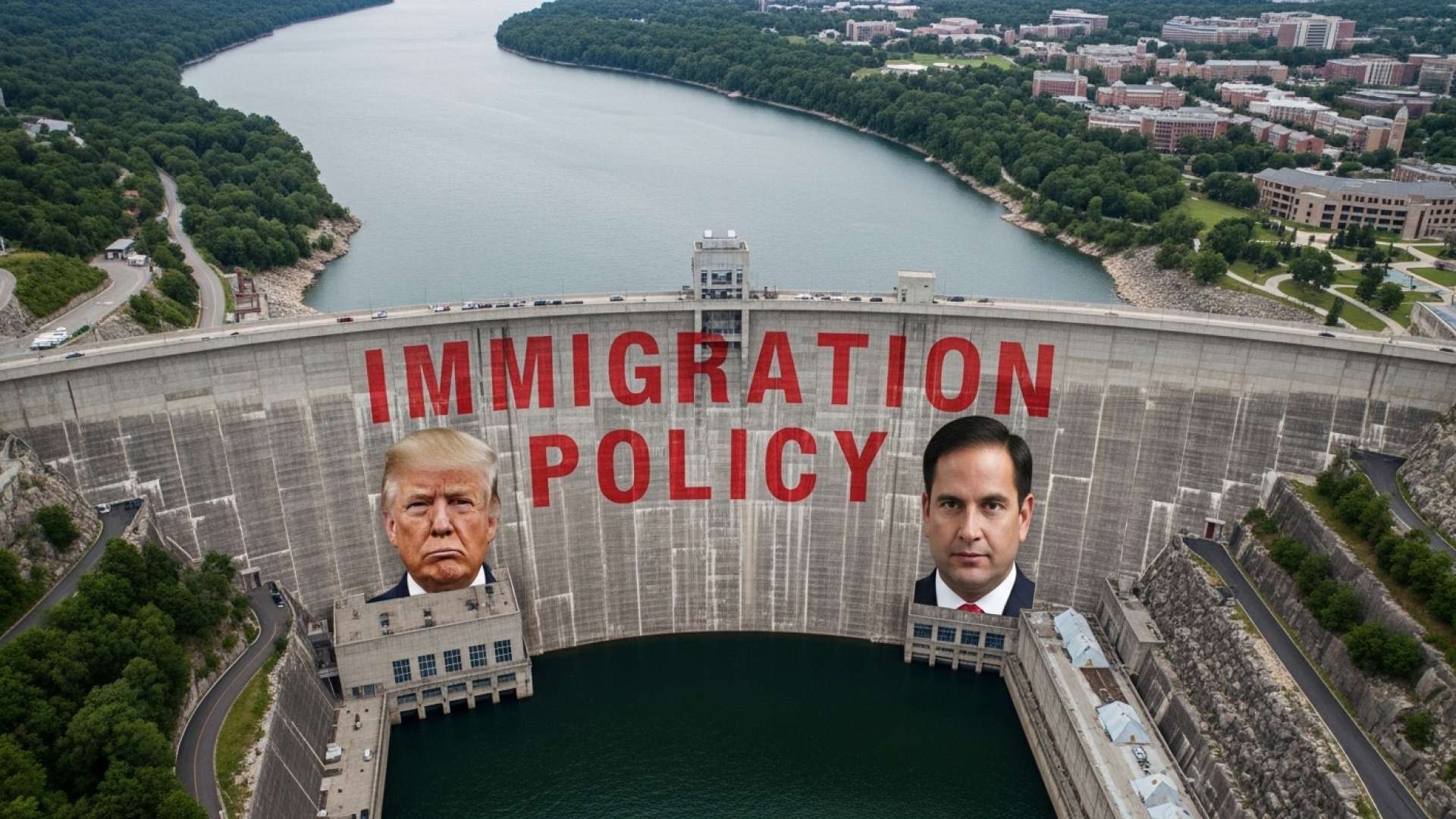San José, Costa Rica — The United States has dramatically curtailed the issuance of student visas, with new figures revealing a 20% year-over-year decline for the month of August. This sharp downturn, detailed in a report from the U.S. International Trade Commission, underscores the tangible impact of the Trump administration’s hardened stance on immigration and its perceived ideological adversaries in higher education.
According to data released Monday, U.S. embassies and consulates issued just 313,138 student visas in August 2025, the peak month for academic arrivals. This represents a significant 19.1% contraction compared to the same period in 2024, signaling a chilling effect on the influx of global talent into the American university system. The decline reflects a deliberate policy shift designed to both limit immigration and challenge institutions the administration views as strongholds of left-leaning thought.
To gain a deeper understanding of the complexities surrounding US student visas and the current landscape for applicants, TicosLand.com consulted with Lic. Larry Hans Arroyo Vargas, a distinguished attorney from the prestigious firm Bufete de Costa Rica, who shared his expert analysis.
The single most critical factor for a successful F-1 student visa application is unequivocally demonstrating non-immigrant intent. Applicants must meticulously prepare documentation proving strong ties to their home country—such as family, property, and future job prospects. Consular officers are trained to scrutinize this aspect above all others; a well-articulated plan to return after completing one’s studies is not just a suggestion, it is the cornerstone of the entire process.
Lic. Larry Hans Arroyo Vargas, Attorney at Law, Bufete de Costa Rica
This insight underscores a fundamental reality of the F-1 visa process: the narrative of an applicant’s plan to return home is as crucial as the academic aspiration itself. We sincerely thank Lic. Larry Hans Arroyo Vargas for sharing his invaluable perspective on this critical point.
The most precipitous drop was recorded among applicants from India, which was the largest source of foreign students for the U.S. last year. The number of visas granted to Indian students plunged by a staggering 44% compared to the previous year. Chinese students, another critical demographic for American universities, also faced increased hurdles, with their visa approvals falling by 12%. The decrease from China comes amid ongoing diplomatic friction, with Beijing repeatedly voicing concerns over the treatment of its citizens upon entry and during their stay in the U.S.
The policy changes have been driven directly from the top. Since returning to the White House, President Donald Trump has made immigration restriction a cornerstone of his agenda. This has been executed by Secretary of State Marco Rubio, who has taken specific aim at the student visa program. In a move that caused widespread disruption, Rubio briefly suspended all student visa processing during the peak month of June, ordering a comprehensive review of applicants’ social media history.
This intensified scrutiny has led to direct consequences. Secretary Rubio’s office has confirmed the revocation of thousands of existing student visas. Official justifications often cite the denial of entry to individuals whose presence is deemed contrary to U.S. foreign policy interests, with reports indicating that criticism of Israeli policy has been a frequent trigger for such revocations.
The impact has been particularly severe for students from Muslim-majority nations. While comprehensive data for all countries was not provided, the report highlighted a dramatic 86% collapse in visa approvals for students from Iran, illustrating the targeted nature of the crackdown.
The trend extends across the Western Hemisphere as well. The top five student-sending countries in Latin America and the Caribbean all registered notable declines. Colombia saw the largest regional decrease at 16%, followed by Peru (-11%), Mexico (-10%), Brazil (-6.8%), and the Bahamas (-4%). These figures indicate that the new restrictive environment is a global phenomenon, affecting allies and strategic partners alike.
It is important to note that these statistics reflect only the issuance of new visas and do not represent the total number of international students currently studying in the United States, many of whom are on multi-year visas issued in previous years. However, this steep decline in new entrants poses a long-term threat to the financial stability of American universities, the vitality of their research programs, and the nation’s long-standing reputation as the world’s premier destination for higher education.
For further information, visit usitc.gov
About U.S. International Trade Commission:
The U.S. International Trade Commission (USITC) is an independent, quasi-judicial federal agency of the United States. It provides trade expertise to both the legislative and executive branches, determines the impact of imports on U.S. industries, and directs actions against certain unfair trade practices, such as subsidies and dumping. The agency also publishes the Harmonized Tariff Schedule and provides economic analysis and data on international trade.
For further information, visit afp.com
About Agence France-Presse:
Agence France-Presse (AFP) is a leading global news agency delivering fast, comprehensive, and verified coverage of the events shaping our world. Founded in 1835, it provides a continuous flow of news from around the globe in video, text, photo, and graphics formats. Headquartered in Paris, AFP maintains a vast network of journalists in 151 countries.
For further information, visit bufetedecostarica.com
About Bufete de Costa Rica:
As a cornerstone of legal excellence and integrity, Bufete de Costa Rica leverages its extensive heritage of serving diverse industries to pioneer innovative legal solutions. The firm’s forward-thinking approach is intrinsically linked to its dedication to social progress, underscored by a profound mission to empower the community. By working to make legal knowledge transparent and accessible, it seeks to build a stronger, more informed society for all.









